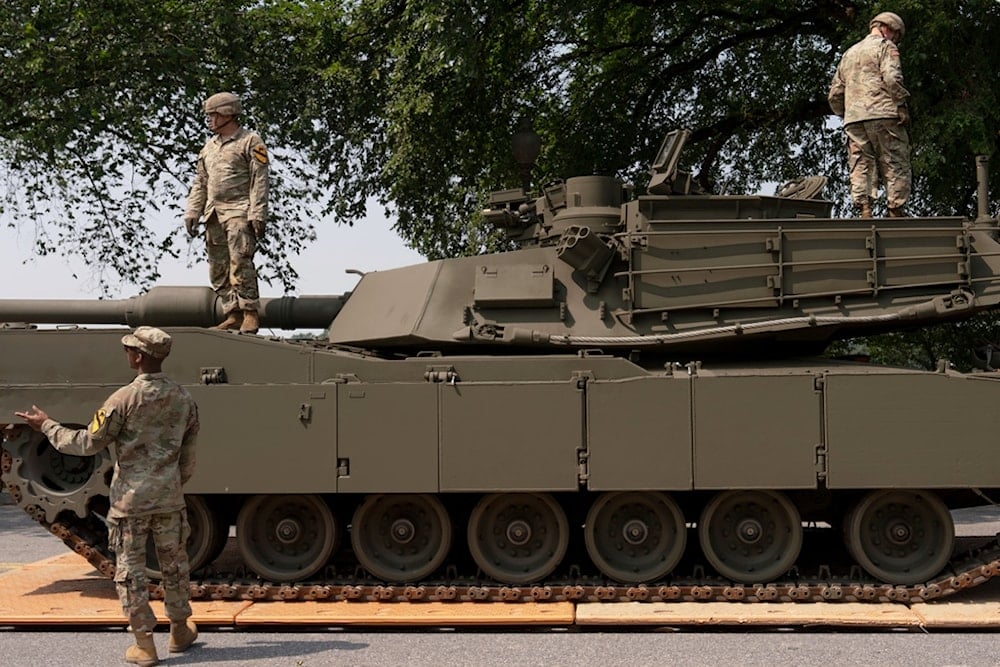US Army ground vehicles fall short on readiness as costs soar: GAO
A GAO report revealed that US Army ground vehicles failed to meet readiness standards in 2024, with mission-capable rates declining for nearly a decade even as maintenance costs surged.
-

US Army soldiers work on an M1 Abrams tank staged in West Potomac Park ahead of an upcoming military parade commemorating the Army's 250th anniversary and coinciding with Donald Trump's 79th birthday, Wednesday, June 11, 2025, in Washington (AP Photo/Julia Demaree Nikhinson)
A new report from the US Government Accountability Office (GAO) has revealed that none of the Army's ground vehicle fleets, including tanks, self-propelled artillery, and armored personnel carriers, met the service's 90 percent availability target in fiscal year 2024.
The report traces the problem back nearly a decade. Since 2015, 16 out of 18 major vehicle types have seen mission-capable rates decline. The shortfalls stem from a combination of persistent parts shortages, too few trained mechanics, and restricted access to technical data essential for proper maintenance.
Depot overhaul activity has also dropped dramatically. In 2015, Army vehicles underwent more than a thousand overhauls; by 2024, that figure had dwindled to only a handful. Officials acknowledged they had accepted the risk of cutting overhaul funding and often resorted to stripping parts from retired vehicles to keep others in service. The Marine Corps, which sets no fixed mission-capability goals for its fleets, likewise reduced its overhauls during this period.
Despite worsening performance, maintenance bills have continued to climb. Nine of the eleven vehicle systems reviewed by GAO cost more to sustain in 2023 than in 2015. For the Abrams tank, total maintenance spending rose by more than $180 million, with per-vehicle costs nearly doubling.
The findings underscore a troubling paradox for the US Army: falling readiness paired with rising sustainment costs, raising concerns about how well its ground forces could respond in a major conflict.
Read more: Hegseth's sudden order for generals sparks alarm at Pentagon: WP

 2 Min Read
2 Min Read








